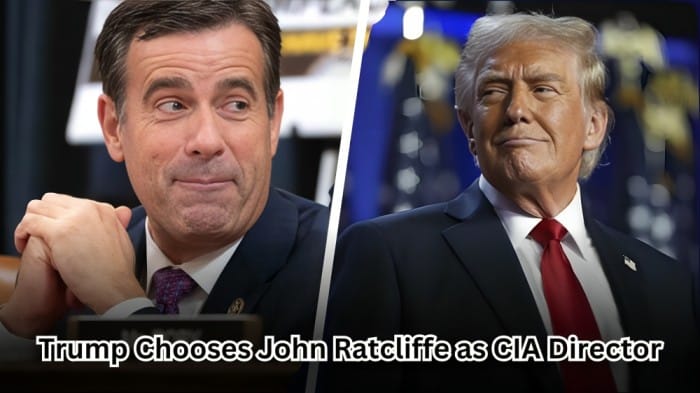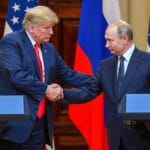In a recent announcement, Donald Trump revealed that he has chosen John Ratcliffe as the new head of the Central Intelligence Agency (CIA). Ratcliffe is a key supporter of Trump who stepped down as director of national intelligence during the first half of Trump’s presidency and remained in the job until early 2020.

The choice to nominate a former insider suggests Donald Trump believes Ratcliffe remains loyal enough and has enough experience for the task. Ratcliffe’s appointment, on the other hand, leaves one more potential candidate, Kash Patel, out of consideration. Patel was indeed a favorite of many for the job and has been an operative in intelligence and defense agencies of great significance, especially under Trump.
Why Ratcliffe?
Trump might have opted to nominate Ratcliffe as an affront to the on-and-off nature he and the latter have had while working together. Ratcliffe played a huge role in the intelligence community during Trump’s first presidency, ranging from uncovering what both he and Trump referred to as “fake Russian collusion,” and further challenging FBI practices. Trump openly praised Ratcliffe for his “warrior spirit” and commitment to truth and honesty saying that he was the only man who would dare talk against the claims made by other intelligence officials, specifically on such controversial topics as Hunter Biden’s laptop scandal.
Trump has described Ratcliffe as “a fearless fighter for Constitutional Rights” and as a man committed to safety for the nation through a strategy that Trump describes as “Peace Through Strength.” In 2020, Ratcliffe was awarded the National Security Medal for his record of achievements, which certainly does not help to persuade Trump that Ratcliffe is the best man for the job.
The Role of Kash Patel
Meanwhile, Kash Patel—a high-ranking official with Indian origins and a former Republican House staffer—was widely believed to be a strong contender for the CIA role. Patel has a notable background in intelligence and defense, having worked as the Chief of Staff to Acting Defense Secretary Christopher Miller and on the National Security Council (NSC). His work on the “Nunes Memo” was particularly valued by Trump, as it criticized the Justice Department’s surveillance methods on a former Trump campaign member. This contribution won him favor within the Trump administration, earning him key positions, including one in the Office of the Director of National Intelligence (ODNI).
READ NOW | Mike Waltz Selected as Trump’s National Security Advisor
While Patel’s resume is impeccable, Trump’s final choice gave its preference to Ratcliffe. Perhaps it is an action of trust rather than talent, both are capable, but Ratcliffe has experience with Trump’s administration. My opinion? Trump values loyalty and vision both of which he seems to have found in Ratcliffe.
Why Is This Important?
Ratcliffe’s record as the Director of National Intelligence wasn’t problem-free. This has led Democrats and former intelligence officials to accuse him of declassifying some pieces of intelligence for the political image of Trump, especially during the 2020 elections. Ratcliffe’s office denied the claims, but this perception still lingers that his loyalties may sometimes tilt towards personal alliances instead of neutrality. Some even accused him of exaggerating his counter-terrorism experience when serving as a federal prosecutor in Texas, though nothing was ever done to prove this in concrete terms.
Perhaps bringing Ratcliffe back would raise concerns about political influence within intelligence agencies. While bringing him back may ensure Trump gets someone who shares his agenda with him, his appointment is likely to fan old flames about partisan bias.
Trump’s Strategy Moving Forward
The decision to grant the nomination of Ratcliffe, a loyalist and someone who shares his views on all mainstream issues, suggests that Trump is preparing a roster of collaborators in his campaigns. The move is not a new technique by Trump, however, in the intelligence communities, it tends to spur debates over impartiality.
This is certainly going to lead to discussions over whether this is a means to restore power and integrity to the CIA, especially to those who keep a close watch on US politics. This will likely lead to general debates on transparency and the role of political loyalty in intelligence positions. For Trump supporters, it might be a move to restore strength and integrity to the CIA, while critics question what influence lies within some political agenda.
In summary, Trump’s choice reaffirms his pattern of selecting not only qualified people but also those who share his ideals. To Trump, perhaps, the kind of team he is assembling seems to care less about broad appeal and more about focused loyalty and shared vision and a decision that may define a particular tone for his administration should he return to the White House.
Minutes by M31GlobalNews






